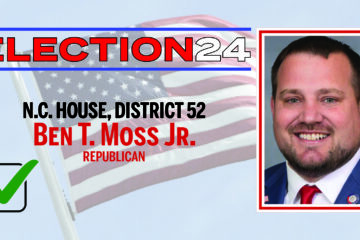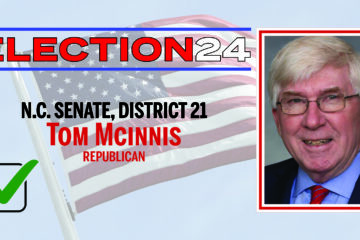RALEIGH — Legislation making it lawful to smoke marijuana or consume cannabis-infused products for medical purposes in North Carolina cleared the state Senate on Monday evening following the Senate’s vote to send Medicaid expansion to the house last week. Gov. Roy Cooper also issued an executive order that will provide paid leave to employees to take a day off for a day of “personal significance.”
After no debate, the medical marijuana measure received bipartisan support by a vote of 36-7. The margin was similar to the outcome of an initial Senate vote last week that followed floor discussion. The bill now goes to the House, where chances for passage before this year’s primary work session adjourns in a few weeks appear long. Speaker Tim Moore has said the issue may have to wait until next year.
The legislation creates a system whereby someone with one of more than a dozen “debilitating medical conditions” — cancer, HIV/AIDS, epilepsy and post-traumatic stress disorder among them — can be prescribed cannabis by a trained physician. Users or their caregivers would have to receive a registration card from the state Department of Health and Human Services.
A new state commission would issue 10 medical cannabis supplier licenses, each of which could open up to eight sales centers. Up to five independent testing labs would be licensed to scrutinize the pot and related-products sold. It would still be awhile before sales occur under the bill given required rule-making and licensing.
Bill sponsor Sen. Bill Rabon, a Brunswick County Republican, has said the measure has undergone years of work — benefiting from successes and failures in other states — and provides some of the strictest oversight in the country. Rabon says the measure will help provide relief to those who are suffering in a lawful and dignified manner.
Legislation that would expand North Carolina’s Medicaid rolls by hundreds of thousands of adults received final Senate approval on Thursday.
The measure, which also contains several other provisions that its authors say would improve health care access and control patient costs, now goes to the House. Speaker Tim Moore reiterated later Thursday that the bill was too complex and time too limited during this annual work session to consider. GOP leaders want to adjourn around July 1.
The Senate already gave the measure initial approval by a near-unanimous margin on Wednesday following substantial debate. There was little floor discussion before a 44-1 vote on Thursday. Sen. Norm Sanderson, a Pamlico County Republican, voted no.
The lopsided votes symbolize a dramatic turn for Medicaid expansion in the Senate, where Republican chamber leader Phil Berger and lieutenants had been among its most ardent opponents. But Berger changed his mind recently, saying that accepting federal money to cover more low-income adults through the 2010 Affordable Care Act now made fiscal sense for the state.
Other provisions scale back and streamline “certificate of need” laws and to allow nurse practitioners, nurse anesthetists and other nurses with advanced instruction to practice without a physician’s supervision.
Tens of thousands of North Carolina state employees can now use paid leave to observe a day of “personal significance,” Gov. Roy Cooper announced on Monday.
Cooper’s executive order gives workers in Cabinet-level agencies an additional eight hours of leave annually for an observance that includes but isn’t limited to days of cultural or religious importance.
The order makes reference to days not listed in the paid holiday schedule for state employees, like Juneteenth, Diwali, Ramadan and Rosh Hashanah.
“North Carolina is at its best when we celebrate our diversity and show respect for the cultural and faith traditions of all North Carolinians,” Cooper said in a news release.
The state employee schedule already is at its maximum of 12 paid holidays. State law says those holidays must include Martin Luther King Jr.’s Birthday, Veterans Day and three days for Christmas.
Agencies and commissions that aren’t directly controlled by the governor can also follow the policy.
The “Personal Observance Leave” should begin no later than June 16, and workers should give at least two weeks’ notice, the release said.
The Associated Press contributed to this report.




